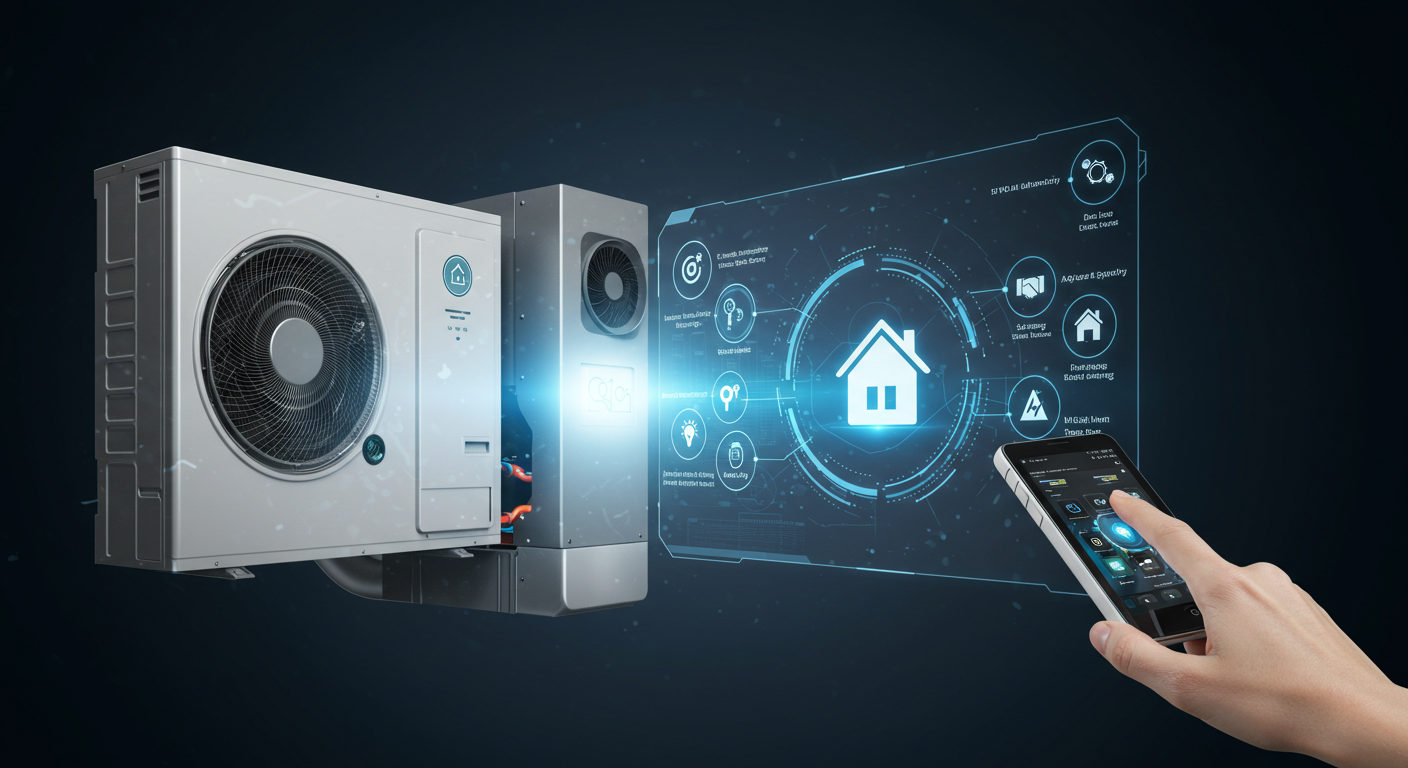
Unlocking the Power of Smart Sensors in HVAC: Real-Time Data for Smarter Service
Imagine an HVAC system that anticipates your needs, reduces energy consumption, and ensures comfort—all thanks to smart sensors. In 2025, this isn’t just a dream but a reality. Smart sensors are revolutionizing HVAC services by providing real-time data that leads to smarter, more efficient operations. Whether you’re managing a commercial building or optimizing a home system, these technologies are transforming how we think about heating, ventilation, and air conditioning.
The Rise of Smart HVAC Sensors
The global smart HVAC market is on the rise, projected to grow at a compound annual growth rate (CAGR) of 10.5% from 2023 to 2030. This growth is driven by IoT-enabled sensors and smart controllers that measure temperature, humidity, airflow, and pressure in real time. Imagine 191 temperature sensors collecting over 9 million data points annually, providing a wealth of information for optimizing your HVAC system.
Predictive Maintenance and Energy Efficiency
Predictive maintenance isn’t just a buzzword; it’s a game-changer. By leveraging smart sensors, you can reduce HVAC downtime by 20–25% and cut energy use by up to 30% with occupancy sensors. These technologies analyze sensor data with AI-powered diagnostics, identifying potential failures before they occur and adjusting system outputs proactively.
Smart Monitoring and System Optimization
Smart monitoring and system optimization are at the heart of modern HVAC solutions. Integration with cloud-based platforms and wireless controls means instant alerts and performance dashboards are just a click away. According to the U.S. Department of Energy, smart home HVAC technology can cut energy consumption by over 60% in residential settings and 59% in commercial buildings, making it a crucial component of smart building automation.
The Role of Generative AI
Generative AI-enhanced sensors are taking this a step further by optimizing setpoints, detecting anomalies, and facilitating remote calibration/testing. This adds another layer of intelligence to your HVAC system, ensuring peak performance at all times.
- Real-time HVAC data collection for proactive maintenance.
- Dynamic zone adjustments improve occupant comfort by up to 20%.
- Remote monitoring and energy management for smarter service routines.
- Enhanced indoor air quality with advanced sensors.
Conclusion
The future of HVAC is smart, efficient, and incredibly responsive. By embracing IoT HVAC solutions and leveraging real-time data, you can optimize your systems for maximum performance and energy efficiency. With brands like Daikin integrating advanced IoT sensor arrays, the possibilities are endless.
Ready to transform your HVAC system? Start exploring smart sensor solutions today!
Frequently Asked Questions About Smart HVAC Sensors
What are smart HVAC sensors?
Smart HVAC sensors are IoT-enabled devices that monitor and measure environmental factors like temperature, humidity, airflow, and pressure in real-time, providing valuable data for system optimization.
How do smart sensors contribute to HVAC predictive maintenance?
By collecting real-time data, smart sensors enable predictive maintenance by identifying potential issues before they lead to system failures, thus reducing downtime and maintenance costs.
Can smart HVAC technology really reduce energy consumption?
Yes, smart HVAC technology can significantly reduce energy consumption. According to the U.S. Department of Energy, it can cut energy use by over 60% in residential and 59% in commercial buildings.
How does smart monitoring improve indoor air quality?
Smart monitoring systems use advanced sensors to continuously assess indoor air quality, allowing for real-time adjustments that maintain optimal air conditions and improve occupant health and comfort.
What role does AI play in smart HVAC systems?
AI enhances smart HVAC systems by analyzing data for anomalies, optimizing setpoints, and enabling remote diagnostics, which leads to more efficient and reliable system operations.

